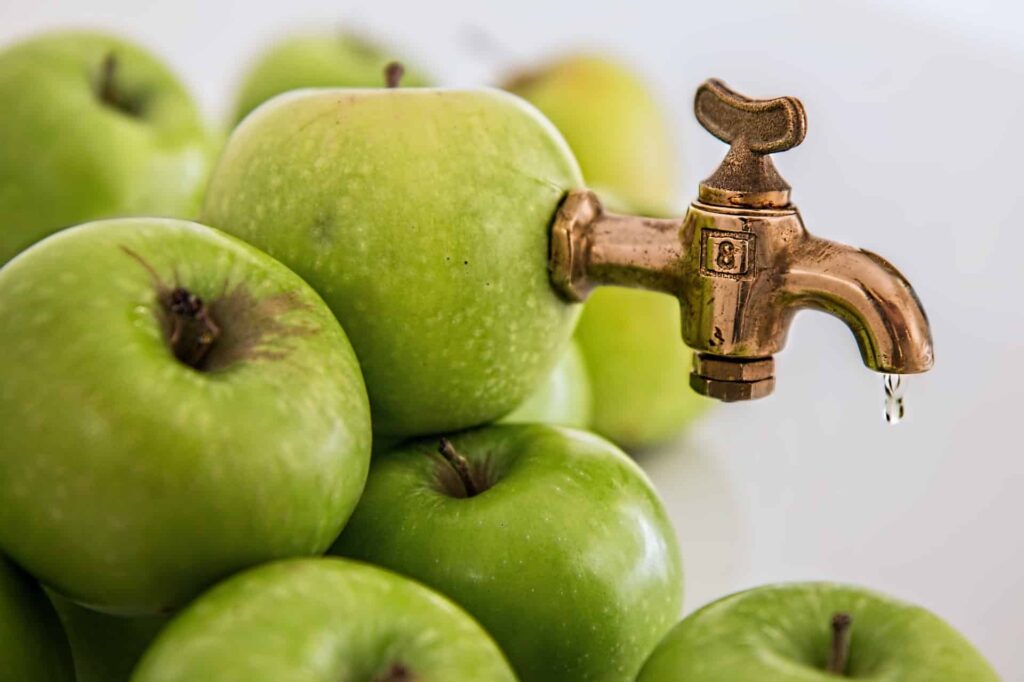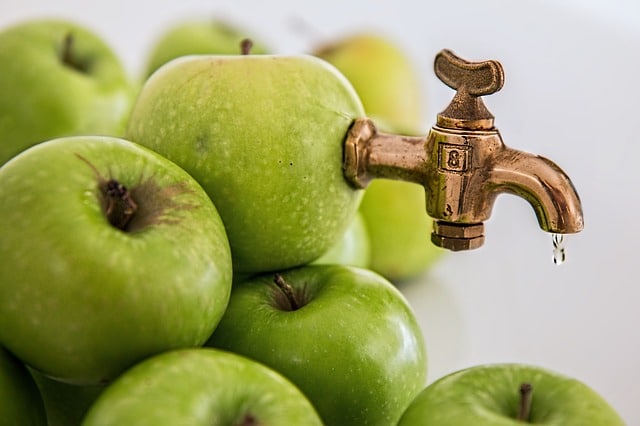Is Apple Juice Good For Constipation? – Overview
Is apple juice good for constipation? – People suffering from constipation should always try natural remedies before taking any supplements. Your body knows what it needs from nature to properly function and survive.
Constipation isn’t only a “difficulty to go” thing but it also makes people experience irregular bowel movements causing other stomach problems.
Apple juice is a tried and tested solution for preventing constipation and maintaining overall well-being.
The fibers, minerals, and vitamins in apple make it the most preferred choice to normalize bowel movements and get rid of constipation.
Is Apple Juice Good For Constipation? – The Properties
We have heard it many times – ‘An apple a day keeps the doctor away. It is valid for apple juice as it is loaded with several health benefits.
- Apple juice contains antioxidants, Vitamins, copper, magnesium, and fiber that are helpful to the body in reducing the risks of several chronic issues as well as cancer. The antioxidants also act as an immunity booster, thereby managing the inflammatory response system.
- Apple juice is rich in alkaline properties, and it helps in getting rid of toxic and waste material from our bodies.
- The skin of an apple contains pectin which is useful to maintain liver health as well as prevent diarrhea.
- Consumption of apple juice lowers the risk of stroke as it helps in reducing the thickening of walls inside the arteries.
- People with chronic asthma attacks can feel relaxed and stay healthy by drinking apple juice. It can lower the wheezing frequency and thus curb the symptoms as early as possible.
- Intake of apple juice regularly lowers the risk of Alzheimer’s disease.

Is Apple Juice Good For Constipation? – The Properties
Nutritional Benefits of Apple Juice
Because of its nutritional benefits and useful properties, apple juice can help in treating constipation.
- As apple juice is high in nutrients, it can supply proper nourishment to the body, added with vitamins and minerals. This way, people with chronic constipation can deal adequately and stay healthy.
- Acts as a laxative that can increase the frequency of bowel movements. People can be relieved from symptoms like abdominal pain and strain during constipation.
- Keeps you hydrated as apple juice is highly rich in oral fluids. The naturally sweet flavor of apple juice is better than just drinking plain water. This way, fluid consumption reduces constipation in kids and adults.

Is Apple Juice Good For Constipation? – Nutritional Benefits of Apple Juice
How does Apple Juice Prevents Constipation?
Constipation is a medical condition for infrequent bowel movements. Fortunately, there are some beneficial foods available to treat and prevent the conditions like this.
One of the readily available fruits is the apple which has some remarkable properties in it which can surely bring relief to you.
Assist with Hydration
Consuming apple juice will help to make insufficient fluid intake and would eliminate the dehydration problem. It can help to substitute the need for water for the body and make it hydrated.
Laxative Effect
While apple juice is used to treat temporary bouts of constipation in children, so it can help to relieve mild cases among adults, it contains sorbitol that reduces abdominal pain and improves bowel movements.
Improves Bowel Movements
Apple juice contains a sufficient amount of fiber in it so, which helps to prevent infrequent bowel movements. It ultimately results in improved stool consistency and reduced flatulence pain.

Is Apple Juice Good For Constipation
Apple Juice Remedies for Constipation Treatment
Drink Pure Apple Juice
Having fresh apple juice daily is a good habit. It is because the fruit consists of many essential nutrients in it. Also, it helps to refresh our bodies and mind.
Mix Apple Juice with Pear Juice
Another important way to boost bowel movement is having fresh apple juice mixed with pear juice.
Combine Apple Juice with Fresh Apples
You can also combine fresh-cut apples with your apple juice for better results. It can help to prevent the constipation problem.
Apple Juice with Lemon and Prune Juice
Prune & lemon juice has always been good choices when it comes to constipation.

Is Apple Juice Good For Constipation
See Also
References
https://www.ncbi.nlm.nih.gov/pmc/articles/PMC442131/
